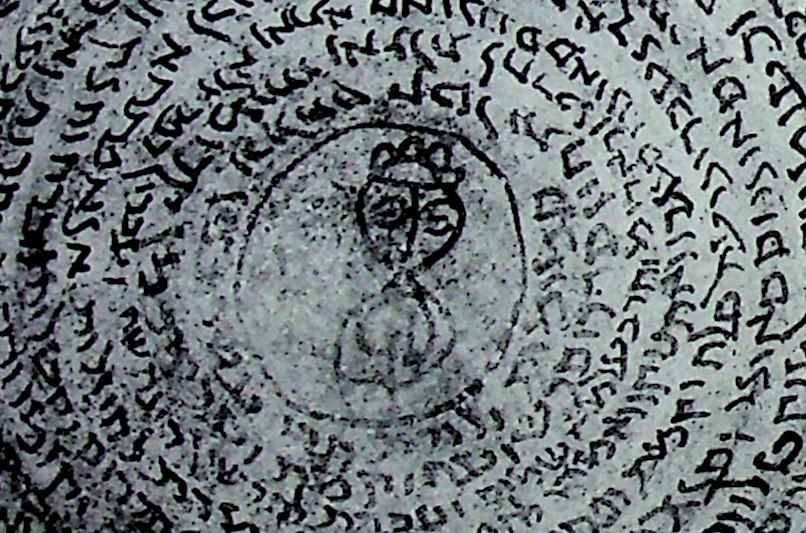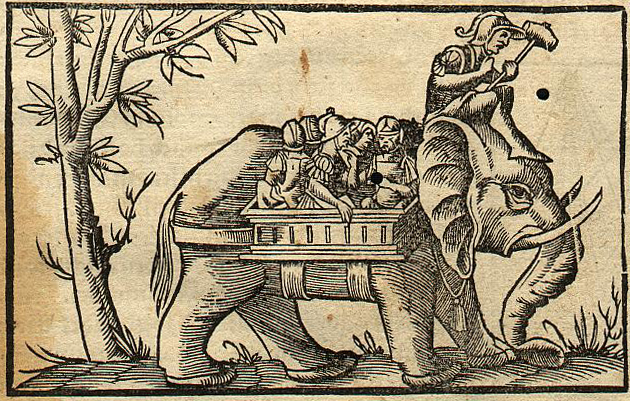| Source (Greek) | Translation (English) |
|---|---|
[1] Book 7 §33 Αίώνιε σῶτερ ὴμῶν, ὸ βασιλεὺς τὼν θεών, θεὸς πατέρων ὴμῶν ὸ θεὸς Άβραὰμ καὶ, Ίσαὰκ καὶ Ίακώβ, ὸ έλεήμων καὶ οίκτίρμων ὸ μακρόθυμος καὶ πολυέλεος, ᾦ πᾶσα γυμνοφανὴς βλέπεται καρδία καὶ πᾶν κρύφιον ενθύμημα άποκαλύπτεται πρὸς σὲ βοῶσιν ψυχαὶ δικαίων, έπὶ σοὶ πεποίθασιν ελπίδες ὸσίων, καὶ κατὰ πᾶν κλίμα τῆς οίκουμένης τὸ διὰ προσευχῆς καὶ λόγων άναπέμπεταί σοι θυμίαμα. |
Our eternal Savior, the king of the gods, God of our fathers, God of Abraham, Isaac and Jacob, the merciful and compassionate, the patient and very merciful, the one to whom every heart is seen as naked and (to whom) every hidden thought is revealed; to you the souls of the righteous cry out, upon you the hopes of the pious rely, and in every region of the inhabited earth, incense is sent up to you through prayer and words. |
Πᾶσι δὲ άνέῳξας πύλην έλεημοσύνης ὺπεδείξας δὲ ὲκάστῳ τῶν άνθρώτιων ὼς πλούτου ούκ άϊδιον τὸ κτῆμα, εύπρεπείας ούκ άέναον τὸ κάλλος, δυνάμεως εύδιάλυτος ὴ ίσχύς. ὺπέρμαχε γένους Άβραἀμ, εύλογητὸς εἶ είς τοὺς αίῶνας. |
(You) opened to all the gate of mercy and showed to all mankind how the possession of wealth is not eternal, the beauty of comeliness is not everlasting, the strength of power is easily dissolved. O Defender of the offspring of Abraham, blessed are you forever. |
Blessed are you O Lord, king of the ages, who made the universe. O Quickener of the dead. | |
[3] Book 7 §35 Μέγας εἷ, κύριε καὶ μεγάλη ὴ ίσχύς σου καὶ τῆς συνέσεώς σου ούκ ἔστιν άριθμός, κτίστα, σωτήρ, καὶ, Σεραφὶμ ἅγια ἅμα τοῖς Χερουβὶμ τοῖς ὲξαπτερύγοις σοι λέγοντα άσιγήτοις φωναῖς βοῶσιν, Ἅγιος, ἅγιος, ἅγιος κύριος Σαβαώθ, πλήρης ὸ ούρανὸς καὶ ὴ γῆ τῆς δόξης σου, καὶ τὰ ἕτερα τῶν άγγέλων πλήθη, έπιβοῶντα λέγουσιν, Εύλογημένη ὴ δόξα κυρίου έκ τοῦ τόπου αύτοῦ. Ίσραὴλ δέ, ὴ έπίγειός σου έκκλησία ὴ έξ έθνῶν, ταῖς κατ´ ούρανὸν δυνάμεσιν ὰμιλλωμένη νυκτὶ καὶ ήμέρα ψάλλει, Τὸ ἅρμα τοῦ θεοῦ μυριοπλάσιον χιλιάδες εύθηνούτων κύριος έν αύτοῖς έν Σιναΐ έν τῶ άγίῳ. |
Great are you, O Lord and great is your strength, and of your understanding there is no measure, Creator, Savior. And the holy Seraphim together with the six winged Cherubim say to you and cry out with never-ceasing voices, “Holy, holy, holy Lord Tseḅaoth, heaven and earth are full of your glory.” And the other multitudes of angels cry out and say, “Blessed is the glory of the Lord from his place.” But Israel your earthly assembly from the nations, competing night and day with the powers in heaven sings, ‘The chariot of God is ten thousand fold thousands of flourishing ones. The Lord is among them on Sinai.’ |
Διὸ καὶ όφείλει πᾶς ἄνθρωπος έξ αύτῶν τῶν στέρνων σοὶ τὸν ὺπὲρ πάντων ὔμνον άναπέμπειν, διὰ σὲ τῶν ὰπάντων κρατῶν. τὸ γὰρ σὸν αίώνιον κράτος καὶ φλόγα καταψύχει καὶ λέοντας φιμοῖ καὶ κήτη καταπραΰνει καὶ, νοσοῦντας έγείρει καὶ, δυνάμεις μετατ-ρέπει καὶ στρατὸν έχθρῶν καὶ λαὸν άρι θμούμενον έν τῷ ὺπερηφα-νεύεσθαι καταστώννυσιν. σὺ εἶ ὸ έν ούρανῷ, ὸ επὶ γῆς, ὸ έν θαλάσσῃ, τής γὰρ μεγαλοσύνης σου ούκ ἔστιν πέρας. μὴ γὰρ ὴμέτερόν έστιν τοῦτο, δέσποτα, τοῦ θεράποντός σου λόγιόν έστιν φάσκοντος, καὶ γνώσῇ τῇ καρδίᾳ σου, ὅτι κύριος ὸ θεός σου, θεὸς έν ούρανῷ ἄνω καὶ έπὶ γῆς κάτω, καὶ ούκ ἔστιν ἔτι πλὴν αύτοῦ. ούδὲ γὰρ ἔστι θεὸς πλὴν σοῦ μόνου ὰγιος ούκ ἔστι πλὴν σοῦ, κύριος θεὸς γνώσεων, θεὸς ὰγίων, ἅγιος ὺπὲρ πάντας ὰγίους, οὶ γὰρ ὴγιασμένοι ὺπὸ τὰς χεῖρὰς σού είσιν. |
Wherefore everyman ought to send up the hymn to you from their breasts for all things, since on account of you he has power over all things; for your eternal power both cools the flame, muzzles the lions, pacifies sea monsters, raises up those who are sick, turns back powers and lays low the army of enemies and the people numbered with those who behave arrogantly. You are the one in heaven, on the earth, in the sea, for of your magnitude there is no limit; for this is not our (oracle) Master, it is your servant’s oracle who says, “And know in your heart that the Lord your God is God in heaven above, earth below and there is none except him.”[4] Deuteronomy 4:39 For there is no God except you alone, no holy one but you, Lord God of knowledge, God of holy ones, holy above all holy ones; for they are sanctified by your hands. |
[5] Book 7 §36 Κύριε παντοκράτορ, κόσμον ἔκτισας καὶ σάββατον ὥρισας είς μνήμην τούτου, ὅτι έν αύτῷ κατέπαυσας άπὸ τῶν ἔργων καὶ ὲορτὰς διετάξω είς εύφροσύνην τῶν ὴμετέρων ψυχῶν. |
Lord, you created the world and set apart the Sabbath to remember this, because on it you rested from (your) works and you ordained feasts for the gladdening of our souls. |
σύ γάρ, κύριε, καὶ τοὺς πατέρας ὴμῶν έξήγαγες έκ γῆς Αί γύπτου καὶ έρρύσω έκ καμίνου σιδηρᾶς καὶ έκ πηλοῦ καὶ πλι νθουργίας, έλυτρώσω έκ χειρὸς Φαραῶ καὶ, τῶν ὺπ´ αύτὸν καὶ διὰ θαλάσσης ὼς διὰ. ξηρᾶς αύτοὺς παρήγαγες καὶ έτροποφόρησας αύτοὺς έν τῇ έρήμω παντοίοις άγαθοῖς. νόμον αύτοῖς έδωρήσω δέκα λογίων σῇ φωνῇ φθεγχθέντα καὶ χειρὶ σῇ κατανραφέντα. σαββατίζειν ένετείλω, ού πρόφασιν άργίας διδούς, άλλ´ άφορμὴν εύσεβείας, είς γνῶσιν τῆς σῆς δυνάμεως, είς κώλυσιν κακῶν ὼς έν ίερῷ καθείρξας περιβόλῳ διδασκαλίας χάριν είς άγαλλίαμα ὲβδομάδος. διά τοῦτο έβδομὰς μία καὶ ὲβδομάδες ὲπτὰ καὶ μὴν ἕβδομος καὶ ένιαυτὸς ἕβδομος καὶ τούτου κατὰ άνακύκλησιν ἔτος πεντηκοστὸν είς ἄφεσιν. ὅπως μηδεμίαν ἔχωσιν πρόφασιν ἄνθρωποι ἄγνοιαν σκήψασθαι τούτου χάριν πᾶν σάββατον έπέτρεψας άργιεῖν, ὅπως μηδὲ λόγον τις έν όργῇ έκ τοῦ στόματος αύτοῦ προέσθαι θελήσῃ έν τῇ ὴμέρᾳ τῶν σαββάτων. |
For you, Lord, led our fathers out of Egypt and saved (them) from the iron furnace and from the clay and the making of bricks. You redeemed them from the hands of Pharoah and those under him, and you brought them through the sea as through dry land, and you endured their character in the wilderness with all sorts of good things. You gave them the law of ten oracles clearly expressed by your voice and written by your hand. You commanded them to keep the Sabbath; you confined (them) in the sacred precinct for the sake of teaching, for exultation in the number seven. On account of this (there are) one seven and seven sevens and a seventh month and a seventh year and according to this cycle the fiftieth year is for remission. (This is) so that men may have no excuse to plead ignorance. On account of this you entrusted (them) to keep every Sabbath that no one may desire to send forth a word from his mouth in anger on the day of the Sabbath. |
[6] Book 7 §37 Πλήρωσον τὰς έπαγγελίας τὰς διὰ τῶν προφητῶν καὶ έλέησον τὴν Σιὼν καὶ οίτείρησον τὴν Ὶερουσαλὴμ καὶ άνυψῶσον τὸν θρόνον Δαυὶδ τοῦ παιδὸς σου έν μέσῳ αύτῆς. δέσποτα ὸ θεός, πρόσδεξαι τάς διὰ χειλέων δεήσεις τοῦ λαοῦ σοῦ τοῦ έπικαλουμένου σε έν άληθείᾳ. |
Fulfill the promises of the prophets and have mercy on Ẓion and compassion on Jerusalem, and exalt the throne of David your servant in its midst. O Master, God, accept the entreaties from the lips of your people which call upon you in truth. |
[7] Book 7 §38 Eύχαριστοῦμέν σοι περὶ πάντων, δέσποτα ὅτι ούκ έγκατ-έλιπες τὰ έλέη σου καὶ τοὺς οίκτιρμούς σου άφ´ ὴμῶν, άλλὰ καθ´ ὲκάστην γενεὰν καὶ γενεὰν σώζεις, ῥύῃ, άντιλαμβάνῃ, σκεπάζεις καὶ άπὸ μαχαίρας γάρ έρρύσω καὶ έκ λιμοῦ έξείλω διαθρέψας, έκ νόσου ίάσω, έκ γλώσσης πονηρᾶς έσκέπασας. περί πάντων σοι εύχαριστοῦμεν, ὸ καὶ φωνὴν ἔναρθρον είς έξομολόγησιν δωρησάμενος καὶ γλῶσσαν εύάρμοστον δίκὴν πλήκτρου ὼς ὄργανον ὺποθείς, καὶ γεῦσιν πρόσφορον καὶ άφὴν κατάλληλον καὶ ὄρασιν θέας καὶ άκοὴν φωνῆς καὶ ὄσφρησιν άτμῶν καὶ χεῖρας είς ἔργον καὶ πόδας πρὸς ὸδοιπορίαν. ποῖος τοιγαροῦν αύτάρκης βίος, αίώνων δὲ μῆκος πόσον διαρκέσει άνθρώποις πρὸς εύχαριστίαν; ἦ τὸ μὲν πρὸς άξίαν άδύνατον, τὸ δὲ κατὰ δύναμιν εύαγές. |
We give thanks to you for all things, Master, because you have not taken your mercies and compassions from us, but in each and every generation you save, rescue, help (and) protect. For you rescued (us) even from the sword and removed (us) from hunger and nourished (us), you healed (us) from disease, and protected (us) from an evil tongue. For all things we give thanks to you who have also given (us) an articulate voice for confessing (you) and who have also added a harmonious tongue in the manner of the plectrum as an instrument; and useful taste, appropriate touch, sight for seeing, the hearing of a sound, the ability to smell vapors, hands for works and feet for walking. Therefore what life is sufficient and what length of ages adequate to men to give thanks? Although it is impossible to give thanks as one ought, it is right to give thanks as one can. |
The Talmud Yerushalmi Sotah 7:1, 21b (circa 4th-5th centuries) attests that in Palestine it was either normative or not uncommon for the public recitation of liturgy to be in the vernacular which was Greek.
תלמוד ירושלמי סוטה ז:א, דף כא טור ב וקרית שמע דכתיב ודברת בם רבי אומר אומ׳ אני קרית שמע אינו נאמר אלא בלשון הקודש מה טעמא והיו הדברי׳ האלה ר׳ לוי בר חיתה אזל לקיסרין שמע קלון קריין שמע אלוניסתין בעא מעכבתון שמע רבי יוסי ואיקפד אמר כך אומר אני מי שאינו יודע לקרות אשורית לא יקרינה כל עיקר אלא יוצא בכל לשון שהוא יודע…. ותפילה כדי שיהא יודע לתבוע צרכיו וברכת המזון כדי שיהא יודע למי מברך |
Talmud Yerushalmi Sotah 7:1, 21b The reading of the Shema [can be done in any language]. Because it is written: “And you shall speak them.”[8] Deuteronomy 6:7 Rabi says: “I say that the Shema can only be read in Hebrew.” Why? “And these words [that I command you today shall be in your mind].”[9] Deuteronomy 6:6 Rebbi Levi bar Ḥaita went to Caesarea. He heard voices reading the Shema in Greek. He wanted to stop them. Rebbi Yosi heard this and got angry. He said: “Here is what I am saying, should a person who doesn’t know Hebrew not say the Shema at all? No, one’s obligation is fulfilled in whatever language one knows… Tefillah[10] literally “prayer”, but here, I believe, referring to the liturgy of the Amidah [can be said in any language] so that a person will know how to ask for his/her needs. The Birkat Hamazon (prayer after eating a meal) [can be said in any language] so that one will know whom one is blessing.” |
(See this source sheet by Rabbi Ethan Tucker on rabbinic sensitivities to praying in languages other than Hebrew, publicly and privately.)
With the gracious permission of Dr. Fiensy to share his work, the above texts in Greek are my transcription of his reconstruction of the “Hebrew Seven Benedictions” (book 7 §33-38) which I have set side-by-side with his translation in English. In Prayers Alleged to Be Jewish, they appear on pages 198-201 as “Chart E: A Reconstruction of the Original Source.” Many thanks to my dear friend Maria Vamvakidou for her help with Greek diacritics.
Notes

“Reconstruction of a Greek text of the Shabbat Amidah preserved in the Constitutiones Apostolorum (circa 380 CE), by Dr. David Fiensy” is shared through the Open Siddur Project with a Creative Commons Attribution-ShareAlike 4.0 International copyleft license.









Cool, thank you for posting.